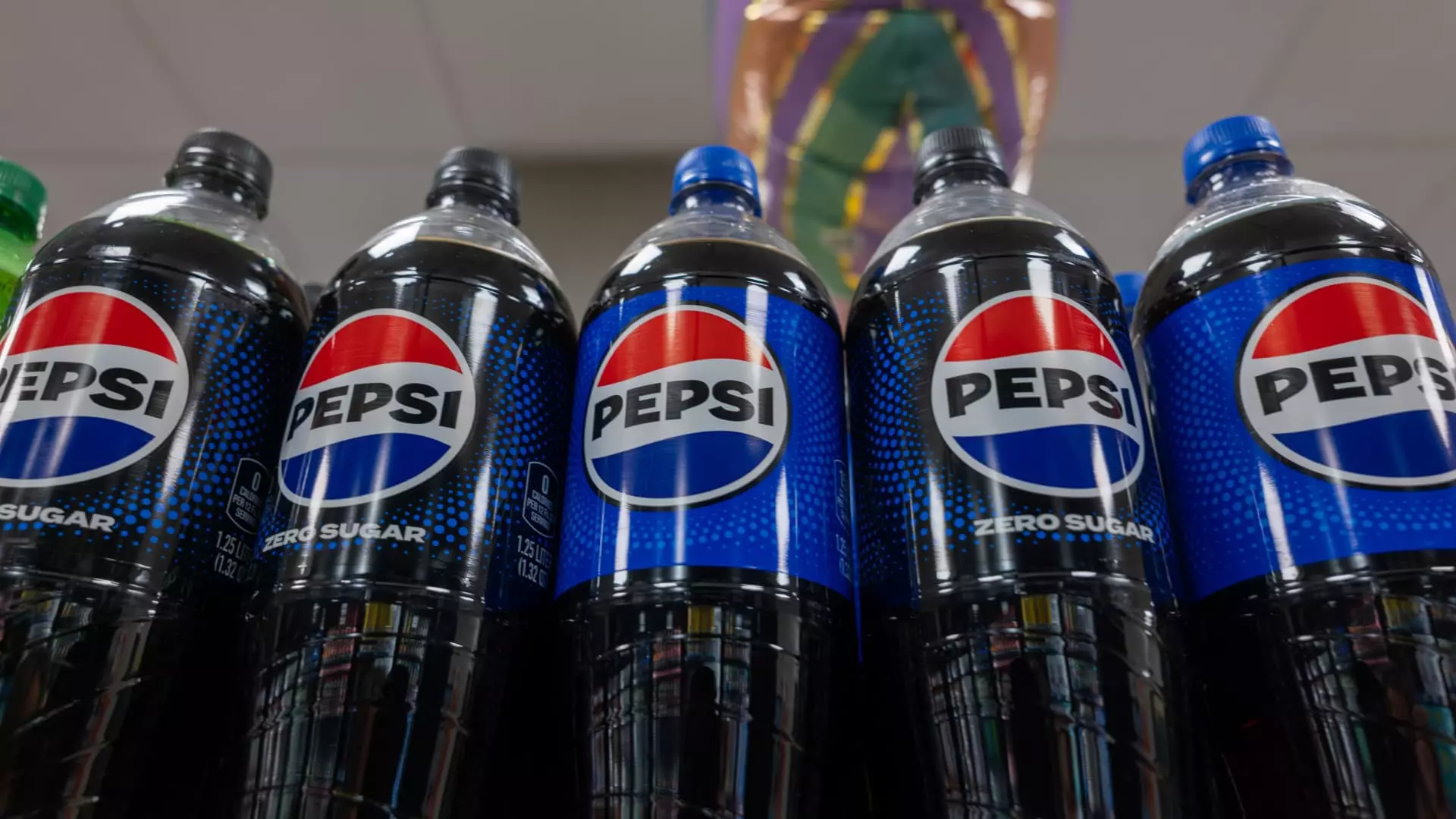PepsiCo’s recent earnings report is a cautionary tale that unveils the urgent rift between corporate performance and consumer reality. With so much economic uncertainty on the horizon, the stellar financials that used to define the food and beverage sector are rapidly giving way to troubling indicators. PepsiCo reported mixed quarterly results on Thursday, revealing that while international sales managed to cushion the blow from a downturn in North America, the overall narrative is far from rosy. This juxtaposition serves as a bellwether for not just the company, but for an entire industry scrambling to adapt amid widespread economic volatility.
The Scourge of Economic Volatility
CEO Ramon Laguarta’s statements were striking in their starkness. He projected that “more volatility and uncertainty” looms ahead, specifically tying the company’s lackluster performance to fluctuating global trade conditions and rising supply chain costs. This admission strikes a nerve. It’s not just corporate talk; it’s an acknowledgment of a consumer battleground where inflation is relentless and habits are shifting. The reality is that consumers are becoming increasingly budget-conscious, which scratches away at the fibers of brand loyalty established over the decades. Rather than escapism through consumption, individuals are clawing back to a more frugal existence, which can spell disaster for companies that formerly thrived on brand cachet and aspirational marketing.
A Grim Forecast
The quantifiable impacts of these broader economic trends are reflected in PepsiCo’s disappointing earnings per share, which came in just slightly below analysts’ expectations. The drop in net income—from $2.04 billion to $1.83 billion year-on-year—mimics a pervasive anxiety gripping the entire economy. Even though revenue saw a slight uptick against expectations, a closer inspection reveals it’s largely attributable to international markets, which are simultaneously facing their own set of challenges. The adjustment in forecast from previously expected growth to stagnation raises an eyebrow: is this a sign of impending doom or simply a natural correction to an overhyped market?
The North American Dilemma
PepsiCo’s North American business, where sales volume has dropped across both food and beverage categories, should raise alarms. The battle cry to pivot towards multicultural and functional products signifies both opportunity and desperation. With products like Simply, Sabra, and Siete being pushed harder, we have to ask—are these genuinely innovative moves or mere attempts at keeping pace with fleeting consumer preferences? The acquisition of Poppi, a prebiotic soda brand, also positions PepsiCo in a niche market that is just beginning to see traction. But navigating these waters requires more than just new products; it demands a fundamental understanding of shifting cultural values and nutritional concerns that truly resonate with a modern consumer facing overbearing financial constraints.
Peering into the Future
While there are pockets of growth such as Pepsi Zero Sugar, which has attracted a more health-conscious demographic, it won’t be enough to safeguard the company from its broader struggles. The stark reality is that this evolving consumer landscape requires retailers to re-strategize their approach, ensuring optimal placement and availability of products. Failure to engage effectively with consumers could spell disaster in a future where brand loyalty hangs by a thread.
As the food and beverage giant trudges forward, it will need to adapt its business model not only to cater to current consumer demands but also to anticipate future shifts. Energy drinks, health-focused snacks, and prebiotic beverages might be the wave of the future, but they must navigate an economic tide that is anything but stable.
In sum, PepsiCo’s quarterly results are not isolated to the company’s portfolio; they echo a larger sentiment of uncertainty that reverberates through the marketplace. As consumers assess their priorities in the face of inflation and economic instability, PepsiCo’s experience serves as essential commentary on the fragility of even the most established entities in our economies today.

